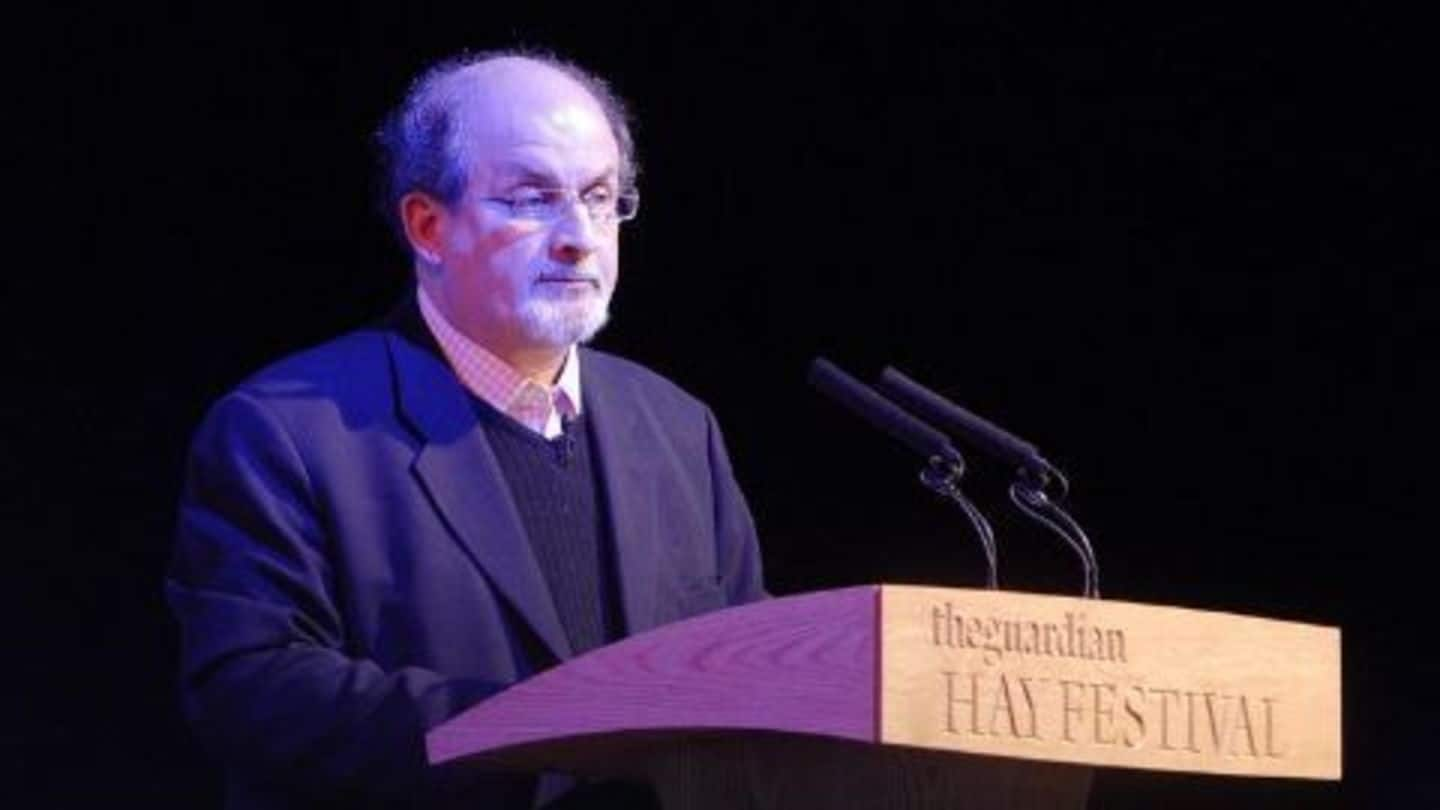
'Swedish Academy' condemns Iran's fatwa on Rushdie
What's the story
The 'Swedish Academy', which selects the Nobel Prize winners in the field of literature, has condemned the death fatwa against Salman Rushdie for his 'The Satanic Verses'.
In 1989, two members of the panel had resigned as it rejected to condemn the fatwa issued by Iran.
Swedish Academy's post on its website termed the fatwa and the bounty as 'flagrant breaches of international law'.
Introduction
Who is Salman Rushdie?
Sir Salman Rushdie is a British Indian novelist who was born on 19 June 1947.
His works are said to be a combination of magical realism and historical fiction.
His novels include Grimus, Midnight's Children, Shame, The Satanic Verses, The Moor's Last Sigh, The Ground Beneath Her Feet, Fury, Shalimar the Clown, The Enchantress of Florence and Two Years Eight Months and Twenty-Eight Nights.
Personal
Winner of prestigious Booker Prize
Rushdie's second novel 'Midnight's Children' won the 1981 Booker Prize. In 1983, he was elected as a member of the 'Royal Society of Literature'. Queen Elizabeth II knighted him for his contribution to literature in 2007.
Criticism
Salman Rushdie’s controversial fourth novel
'The Satanic Verses', a book authored by Salman Rushdie led to controversies and disruption in the Islamic world soon after its release in 1988.
The worldwide reaction and repercussions were such that it resulted in riots and killings and a ban on the book.
However, the book was received positively by the critics and had won the 1988 Whitbread Award for best novel.
Controversy
Why was the novel controversial and offensive?
'The Satanic Verses' received sharp criticism because of the disrespectful portrayal of Islamic prophet, Muhammad.
The novel's title represents much-debated Islam elements which were offensive to Muslims.
The disputed tradition states that Muhammad added some verses to Qur'an accepting three goddesses who were worshipped in Mecca as divine beings but, later revoked them as he was tempted by the devil to utter those verses.
Personal
What is fatwa?
A fatwa is a legal opinion or interpretation that is given by Sheikhul Islam, a qualified mufti on issues regarding the Islamic law. Fatwas are different from the common-law opinions as they are not universally binding.
14 Feb 1989
Fatwa issued to kill Rushdie
The spiritual leader of Iran, Ayatollah Khomeini had issued a fatwa to execute Rushdie for his novel, 'The Satanic Verses'.
Khomeini had called the book 'blasphemous' against Islam religion on Radio Tehran.
Rushdie was forced to live under British Conservative government's protection for several years.
In 2006, the Iran State News Agency stated that fatwa can't be rescinded as the issuer Khomeini had died.
26 Feb 2016
State-run media raise $6 mn to revive fatwa
The state-run media outlets in Iran had raised $6 million in order to add to a bounty and revive the fatwa issued against Salman Rushdie.
After 27 years of issuing a death fatwa, about 40 organizations raised money to reinforce it.
A chief of Fars News Agency had stated that the fatwa would always remain as it was religious and nobody can cancel it.
Quote
PEN America condemns fatwa
After the news of $6 million bounty raised by Iranian media broke, PEN America stated, "Threats against Salman Rushdie are 'no match' for the author's will to write, speak, and rise to the defence of other targeted writers."